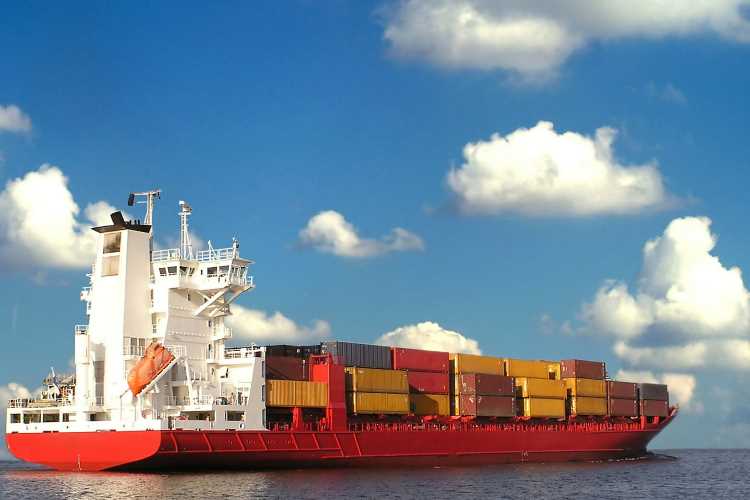
(This article is the last of a four-part series on a viable strategy for India against the economic impact of the new coronavirus outbreak.)
The new coronavirus outbreak, or Covid-19, has caused more than 1,00,000 deaths across the world. According to various estimates, the pandemic could shave off 5-8% from the global GDP. A clearer picture will, however, be available on April 14 when the International Monetary Fund releases its estimates. The Indian economy also is expected to take a huge hit from the most severe pandemic after the Spanish Flu of 1918. While the possible destruction in terms of death and destruction of economic value is yet to be ascertained, the outbreak may offer a major opportunity for India to become an alternative to China as the world’s manufacturing hub.
China has established itself as the Industrial hub of the whole world. Very few countries can match China’s ability to produce all kinds of goods – from manufactured goods, medicines, electronics, and essential ingredients for infrastructure – at a large-scale at rock-bottom prices. The world has become completely dependent on China. Apart from its ability to derive economies of scale which is the main reason for low costs of production, China may be using huge subsidies and currency manipulation to maintain its lead over other manufacturing hubs.
PART 1: Covid-19: Government should extend the lockdown for another five weeks
PART II: MSME sector: Eight ways India can back its small enterprises
PART III: Enlist local bodies in fight against disease, hunger
The manufacturing industry elsewhere has collapsed because of the influx of low-cost goods from China. World’s largest companies in all parts of the globe have outsourced their production activities to China. Consequently, China enjoys an absolute monopoly over the production of several items including medicines. The new coronavirus outbreak in China has disrupted the supply chain of essential items for companies across the world. Production of goods and services and trade activities have been disrupted in most countries, exposing the perils of monopoly production.
There were less than 100 foreign enterprises in China In 1979, but close to a million foreign companies are registered in China today. Of the Fortune 500 companies, 110 have operations in China – almost the same number operating in the US. Foreign companies operating in China include Apple, AT&T, Dell, GE, Texas instruments, Walmart, Target, Toyota, Mitsubishi, Samsung and Subaru. China accounts for 20% of the world manufacturing output. In recent years, companies from Hong Kong, Singapore, South Korea, Japan, the United States, Netherlands, and Germany account for most of the investment in China. Investments were mainly focused on sectors such as manufacturing, computer services, real estate, leasing business and services, wholesale and retail trade, financial intermediation, scientific research, transport, electricity, and construction.
READ: Coronavirus and capitalism’s hour of crisis
The coronavirus outbreak and the subsequent disruption in global output have made the world realise the issues posed by the concentration of production activities in one country. A large number of companies have understood the huge risk posed by their dependence on one country and must be looking for alternative locations to source their production. India with its continental proportions, demographic dividend, democratic system, and sound technical skills should offer itself to the world for establishing long-term investment in factories. The serene North East as well as vibrant central India can be attractive destinations.
The government could consider developing land mass, as it did in case of export processing zones, and invite multinational giants to India and offer them incentive to set up shop here. It is well known that China offers large areas of land to firms to set up factories as well as highly subsidised energy to run them. Infrastructure support, warehousing, technology, transport connectivity with major towns/ports, and incentives to exports can be extended to foreign manufacturers. They should be allowed to use cheap local manpower with accommodative labour laws that permit dormitory lodging and working of factories 24X7. The government will have to aggressively pursue the strategy, diplomatically and politically, to invite foreign giants in manufacturing, services, automobiles, computers, food-chains, and trading houses to set up shop here. The government could also consider setting up townships dedicated to certain industries, as was done in the past, in Jamshedpur, Rourkela and Bhilai.
READ: In depth: Seven ways coronavirus outbreak will change human life
The benefits of having foreign investment and giant corporations are manifold. First, it will boost FDI inflows into the country. FDI inflows into India was $42 billion in 2018, compared with $138 billion into China. Global production bases in India will contribute hugely to employment generation and skill enhancement in the country. This will also make India’s skilled labour force internationally mobile, bringing in remittances that can be tapped for economic growth. Increasing participation of more foreign companies in India will also benefit in improving quality of life and raising standards of living in the country. This will also lead to advancement in technology through transfer from other countries and through domestic R&D. Foreign companies will help India break the middle-income trap, while providing the world an alternative production hub.
Of course, India will need to invest heavily in its physical and social infrastructure to attract foreign companies. This is also an opportune time to revisit the laws governing land acquisition and labour. The need of the hour is an all-out effort to remove the hurdles to investment and economic growth.
(Dr Charan Sigh is a Delhi-based economist. He is the chief executive of EGROW Foundation, a Noida-based think tank.)
Dr Charan Sigh is a Delhi-based economist. He is the chief executive of EGROW Foundation, a Noida-based think tank, and former Non Executive Chairman of Punjab & Sind Bank. He has served as RBI Chair professor at the Indian Institute of Management, Bangalore.


